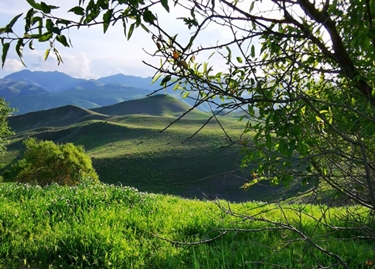
On 4-5 July 2023, the 4th meeting of the Regional Working Group on the development of a Regional Strategy for Adaptation to Climate Change in Central Asia under the Green Central Asia initiative implemented by the German Society for International Cooperation (GIZ) was held in a hybrid format in Almaty, Kazakhstan, the Neutral Turkmenistan newspaper writes.
The text of the Strategy was finalized at the meeting, taking into consideration all the feedback and ideas from the Central Asian nations.
The meeting was attended by members of the focal groups from each Central Asian country. These are representatives of the foreign ministries, relevant ministries and government departments/committees, as well as representatives of the International Fund for Saving the Aral Sea and the Interstate Commission for Sustainable Development.
The title of the document “Regional Strategy for Adaptation to Climate Change in Central Asia” was proposed by Turkmenistan and supported by all participants.
The finalized text will be sent to the countries for their final approval, and as expected, the countries will present it at the 28th COP as one of the signs of their coordinated regional efforts to adapt to climate change in the region.
The Strategy is a framework document according to which by 2030 the Central Asian countries will increase climate resilience and minimize vulnerability to climate impacts in accordance with the Paris Agreement through a joint action approach “together is better”.
The overall goal of the regional strategy is to develop a mechanism for interaction between Central Asian countries to overcome the negative effects of climate change and implement adaptation measures. Priority areas of adaptation actions will be the most vulnerable sectors, such as water resources, energy, agriculture and land use, health, natural ecosystems and biodiversity, disaster risk reduction.
Turkmenistan has made a great contribution to the work of the Regional Working Group on the development of a regional document on adaptation to climate change in Central Asia. Turkmen national experts actively participated in the development of recommendations/list of measures on the main sectors in need of adaptation with a view to their subsequent inclusion in the final document.
Central Asia is the region most exposed to climate change in Eurasia, and increasing resilience to the growing climate impact is a priority to ensure overall prosperity in the region. The average annual temperatures in the region, since the middle of the 20th century, have grown from 0.5 °C in the south to 1.6 °C in the north, and the consequences of such changes range from melting glaciers at elevations to droughts and floods in valleys. ///nCa, 10 July 2023
#Central_Asia, #climate_change, #Turkmenistan, #Kazakhstan, #Kyrgyzstan, #Tajikistan, #Uzbekistan, #GIZ